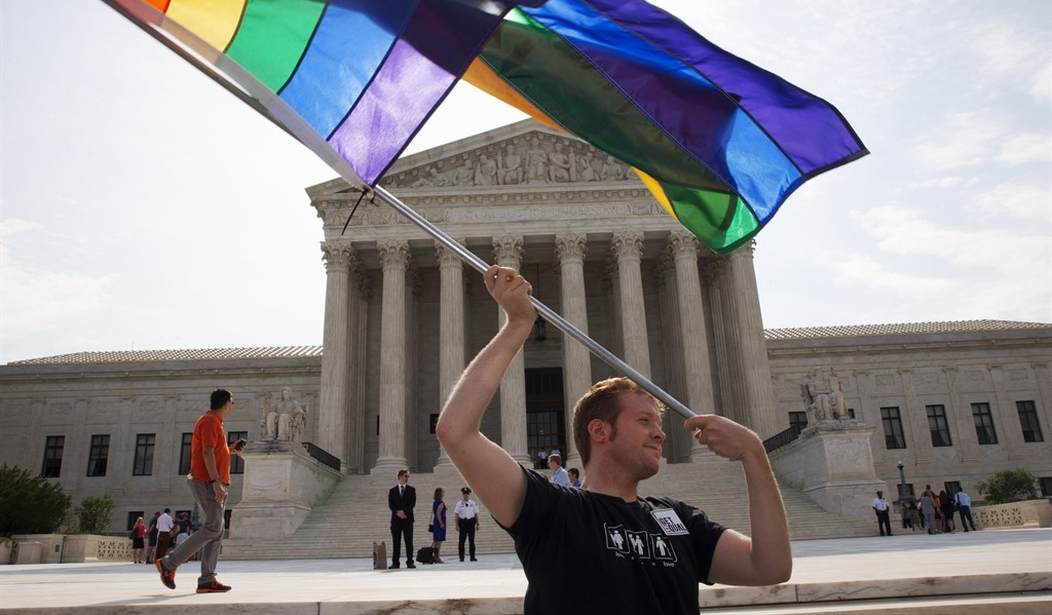Lots of buzz about this yesterday but I’m surprised how few people noted that this isn’t the first poll this year to catch a surge in support for SSM on the right. Gallup published a poll last month that found the same share of Republicans in favor of legalizing gay marriage as Pew’s new poll does. In both cases it’s 47 percent. By the end of the year, pro-SSM may be the majority position in both major parties.

The other big news from the survey was the share of young Republicans who now favor legal gay marriage. Among millennial GOPers the split is 60/38 — but if you know your polling on this subject, you know that that’s really not a newsflash either. As far back as three years ago, a different Pew poll had support among Republicans aged 18-29 at 61 percent. Young R’s have been solidly in favor of gay marriage since at least the beginning of Obama’s first term.
If anything, the newsier bit is how many older Republicans have gradually shifted from anti to pro. In 2014, just 43 percent of Republicans aged 30-49 backed SSM; now, among the roughly corresponding “Generation X,” 51 percent support it. Among the next oldest generation, the Baby Boomers, 42 percent now back gay marriage; three years ago, just 30 percent of Republicans aged 50-64 did so. You can treat that if you like as a verdict on SCOTUS’s Obergefell decision legalizing SSM nationally. If Republicans were alarmed by what they’ve seen over the past two years culturally, you’d expect support for gay marriage to be dropping, not rising. Says Guy Benson, “the Supreme Court’s decision on this issue is much more reflective of — and seems to have exerted more of a solidifying effect upon — public opinion than its abortion activism in the 1970s, which remains highly controversial and divisive to this day.”
Benson makes a good point too about the significance of polling like this for the upcoming Supreme Court showdown over religious objections to catering gay weddings:
Legal protections against weaponized bigotry shouldn’t be reserved for heterosexuals in this country, just as people of faith shouldn’t be effectively barred from operating small businesses because they’re unwilling to actively contribute to same-sex weddings through their professional creative expression. In 2017, it’s indisputable that the number of these ‘conscientious objectors’ within the wedding industry is limited and dwindling, so seeking and singling them out for legal retribution feels gratuitous and wrong. As the charts above demonstrate, gay marriage supporters have done an exceptional job of winning hearts and minds over a very short period of time. Maintaining a course of magnanimity and persuasion (which can entail the simple but impactful act of living openly in one’s community) is the best way forward, in my view.
A strong argument in favor of antidiscrimination laws during the civil rights era was that the majority wasn’t yet willing to recognize minority rights voluntarily. Legal compulsion was necessary to make sure blacks had access to public accommodations. In a country where 60+ percent supports gays’ right to marry, legal compulsion in compliance isn’t as urgent. SCOTUS may well look at the sea change in public opinion and find that it’s the religious skeptics of SSM who are now, effectively, the minority whose rights need protecting.








Join the conversation as a VIP Member